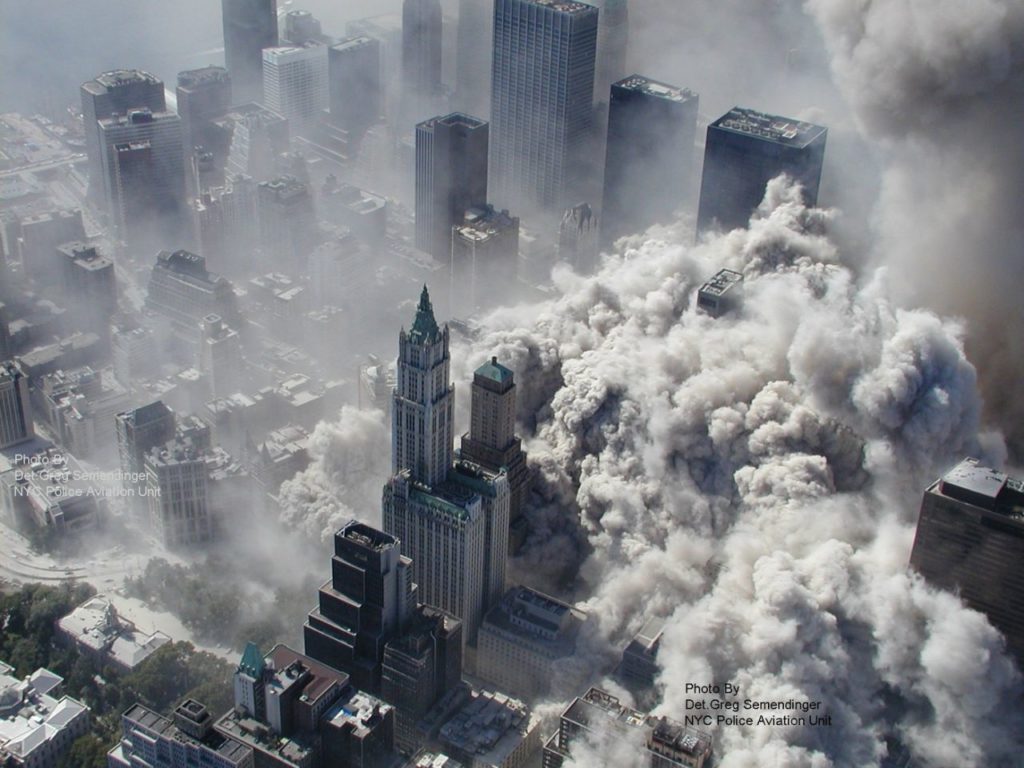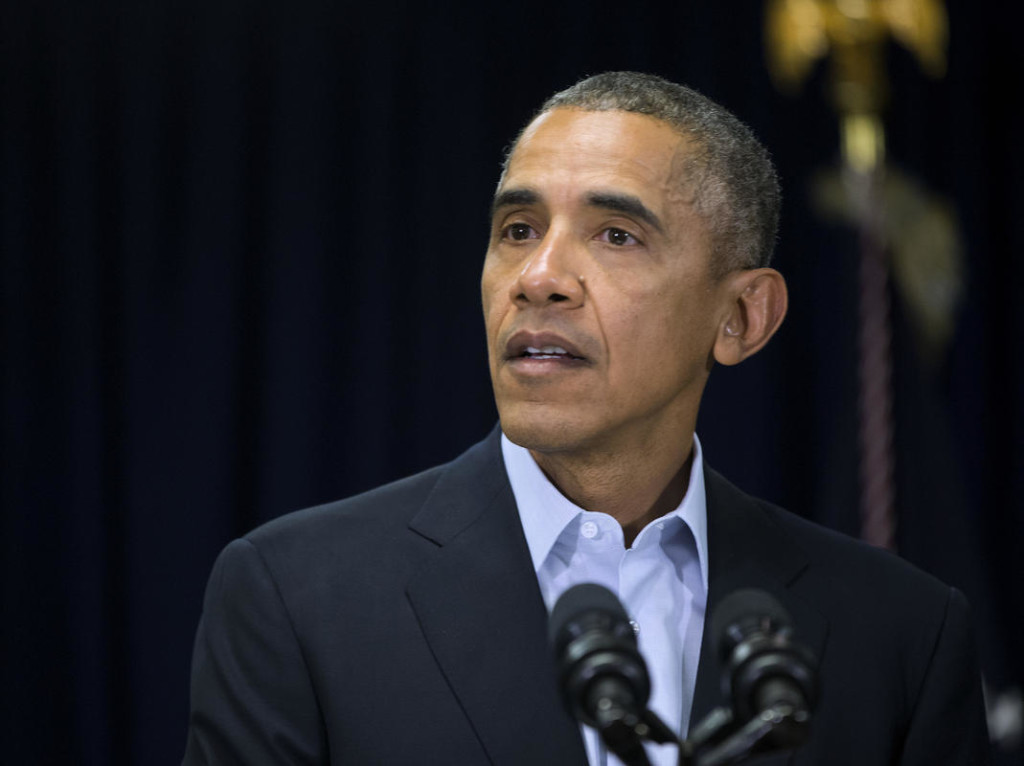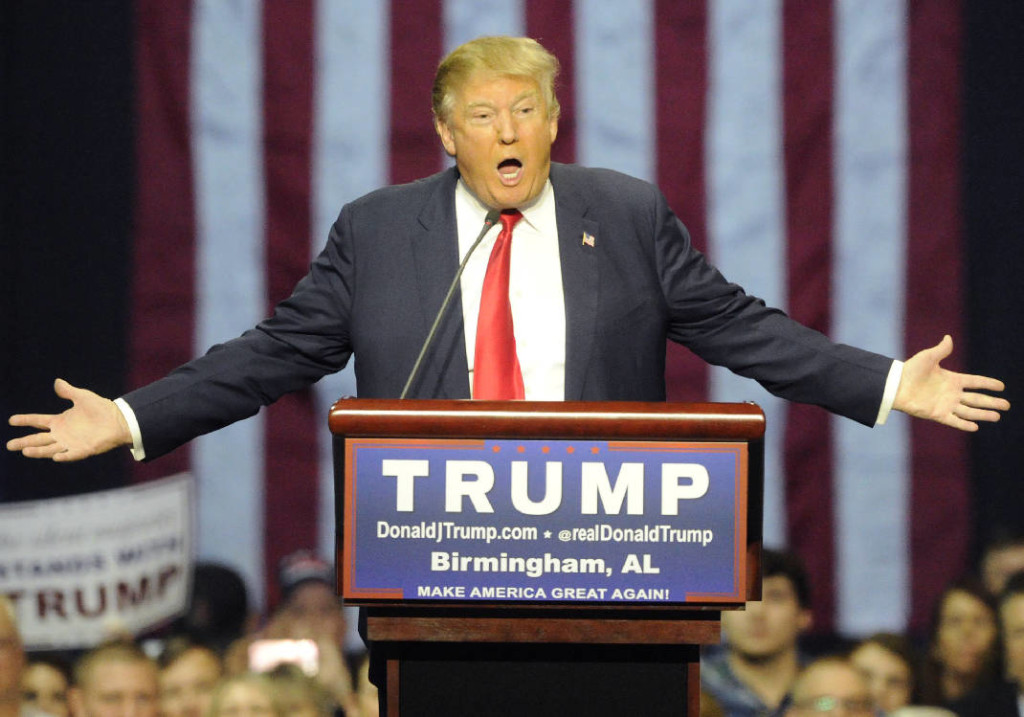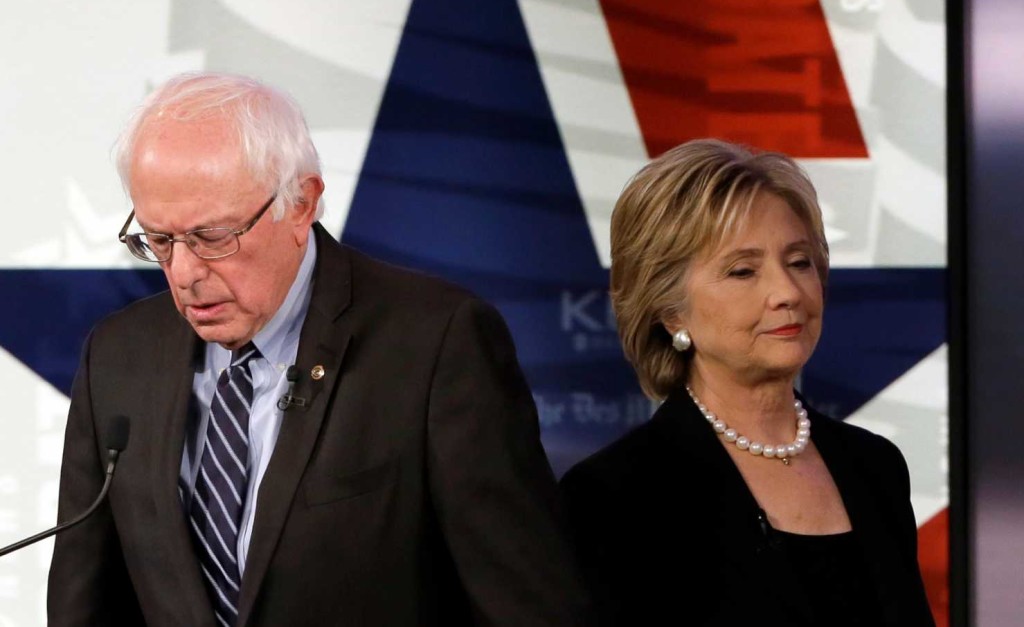What they’re saying: Alabama delegation remembers the 9/11 terrorist attacks

On Tuesday, the nation paused to remember the 17th anniversary of the 9/11 attacks, which killed nearly 3,000 people after hijacked planes crashed, with with tears and somber tributes. Here’s what the Alabama delegation is saying about that tragic day in American history: U.S. Sen. Richard Shelby: Today on September 11th, we recognize the tremendous strength of our nation. We will always remember the courage of those we lost, as well as those who bravely risked their lives to save others. #NeverForget U.S. Sen Doug Jones: Alabama 1st District U.S. Rep. Bradley Byrne: Almost 3,000 people died on September 11, 2001, including some great Alabamians. Today, let us remember their lives and say a prayer for their loved ones. As President George W. Bush has said, “I pray they will be comforted by a power greater than any of us, spoken through the ages in Psalm 23: ‘Even though I walk through the valley of the shadow of death, I fear no evil, for You are with me.’” Alabama 2nd District U.S. Rep. Martha Roby: May we #NeverForget the innocent lives lost and the brave lives sacrificed on this September day 17 years ago. Today especially, let us all remember the victims, honor the heroes, and prayerfully consider the families who still grieve the loss of their loved ones. Alabama 3rd District U.S. Rep. Mike Rogers: We Will #NeverForget. #911 Alabama 4th District U.S. Rep. Rober Aderholt: It’s been 17 years, but for so many, it seems like just yesterday. We will never forget! Alabama 5th District U.S. Rep. Mo Brooks: 17 years ago today, our nation experienced one of the greatest tragedies in our history. The evil act of unprovoked violence shook us as a people, but in the days following, Americans responded with heroism and acts of patriotism. We stood strong in the face of attacks on our God-given freedoms, and we will #NeverForget those who lost their lives that day and those who have since sacrificed in the fight against evil. Alabama 6th District U.S. Rep. Gary Palmer: Seventeen years ago, September 11th was a dark day for America when terrorist attacks on the World Trade Center, the Pentagon, and United Flight 93 resulted in the loss of almost 3,000 lives. The nation was stunned by the evil that struck us that day. But in the midst of that tragedy, we were also inspired. There are countless stories of great courage and sacrifice from that beautiful September day. We well remember the stories of courageous men and women putting their own lives in danger to try to save others, of courageous first responders who ran into the rubble and ruin in New York and Washington, DC and gave their lives in an attempt to rescue survivors. And of course, the brave passengers of Flight 93 will also always be remembered for how they thwarted the hijackers on their flight at the cost of their lives. Their sacrifice likely saved the U.S. Capitol from destruction. I pray that as a nation, we will never forget those whose lives were lost on September 11 or those who bravely sacrificed and died to save others that day. Whenever and wherever we can, we should offer comfort to the families and friends who still mourn. Though this is a sobering anniversary for us as a nation, one thing that we learned about ourselves is that, as in so many other tragedies, we can still take encouragement from the resilience of our people and our ability to unite in times of hardship. Alabama 7th District U.S. Rep. Terri Sewell: Today we honor the memory of those we lost and the courage of the brave men and women who sacrificed to save others on 9/11. We will never forget.
Donald Trump re-calibration: First act as President – ask Congress to declare war on ISIS

In case you missed it, the U.S. has been fighting an unconstitutional, undeclared war against Islamic terrorist enemies around the globe since 9/11. Its cost has been bleeding the American treasury and has depreciated the influence of America as the believable leader of the free world. When he takes office, Donald Trump’s first act as president should be to legitimize the prosecution of this war on Islamic terrorism by heading down Pennsylvania Avenue and asking Congress to legally declare war against ISIS. Trump’s mandate from the American electorate was premised in part on using unrestrained American military power to defeat ISIS and making “American Great Again” by building back and expanding US military capabilities and reach around the world. At the same time, Trump also has promised to bring a more restrained use of American interventionism. “We wanna strengthen all friendships and seek out new friendships,” Trump said at a postelection rally in Fayetteville, North Carolina. “Rather than a rigid dogma, we’re guided by the lessons of history, and a desire to promote stability all over and strength in our land. This destructive cycle of intervention and chaos must finally, folks, come to an end.” By asking for a declaration of war against ISIS (and al-Qaida too), President Trump would deliver on his promise not only to allow the United States to use the power and military might necessary to defeat these Islamic terror groups, but to actually illustrate that he is willing to restrain his presidential power to act alone in prosecuting and defining this war. Trump would also set a mission to actually end what has been an unwinnable war. This “War on Terror” as it stands today is an endless, illegal war, one whose mission, goals and objectives have never been truly defined with a declaration of war mandated both by the U.S. Constitution and the War Powers Act. It has been an undemonstrative series of military actions in a number of different nations of no true definition or ideology to measure victory or defeat. Both our soldiers and their generals have been severely restrained by the Obama administration’s adoption of a military strategy based on weak internationalist doctrine and coalitions, political correctness defined by leftist elites and journalists, and an irrational obsession with restricting civilian casualties that rule out the extreme force necessary to carry out the destruction of enemy – and its supporters too. It’s been a half-assed, stupid way of fighting a war. At the same time, Americans have become too accustomed, even complacent, to this eternal state of war. After 9/11, we were all riled up in a very patriotic way and told to be ready and observant. But after years of fighting that has accomplished little in terms of beating the enemy that is not allowed to be defined in real terms, our government now discounts its true threat to the American people and to diminish the significance and true costs of this state of war. Sadly, while we send drones and the USAF to bomb targets in the Middle East, we have deferred to the Russians, the Saudis, and the Iranians to directly deal with ISIS, to sort out the messes in Syria and Yemen. Even worse, at home, terrorist attacks such as the shootings at Fort Hood in 2009, the Boston Marathon bombing in 2013 and the San Bernardino attack in 2015 and the recent bombing in Manhattan in September are incorrectly termed as criminal matters. Couched cynically as acts by psychologically demented individuals acting alone, these acts of war by international terrorists quickly disappear from the news cycle and the consciousness of a nation. By definitively defining the enemy, an unrestrained scope of waging war, and the cost in blood and coin Americans need to suffer to eliminate a true threat to world stability and American democracy, a declaration of war would be both a defining moment for a new Trump Administration and a needed re-calibration of how our nation is governed and addresses this threat. It would be a truly significant first step in making “America Great Again.” ___ Steven Kurlander blogs at Kurly’s Kommentary and writes for FloridaPolitics.com. He is an attorney and communications specialist living in Monticello, New York. He can be reached at kurlyskommentary@gmail.com.
Showdown: Congress looks to override Obama veto of 9/11 bill

Congress is poised to override President Barack Obama‘s veto of a bill that would allow families of Sept. 11 victims to sue Saudi Arabia for the kingdom’s alleged backing of the terrorists who carried out the attacks that killed nearly 3,000 people. The showdown is expected this week. Proponents of the legislation say they have enough votes for what would be a first: During his nearly two full terms in office, Obama has vetoed nine bills. None has been overridden. While there is broad and bipartisan support for bucking the president, the bill’s opponents also are pushing hard to keep the measure from being enacted. They’re warning the U.S. will become vulnerable to retaliatory litigation in foreign courts that could put American troops in legal jeopardy. Here’s a look at the key issues surrounding the bill, the Justice Against Sponsors of Terrorism Act, as the veto override vote nears: — WHAT WOULD THE LEGISLATION DO? The legislation, known as JASTA, gives victims’ families the right to sue in U.S. court for any role that elements of the Saudi government may have played in the 2001 attacks that killed thousands in New York, the Washington, D.C., area and Pennsylvania. Under the terms of the bill, courts would be permitted to waive a claim of foreign sovereign immunity when an act of terrorism occurs inside U.S. borders. Saudi Arabia has objected vehemently to the bill. — WHY DID OBAMA VETO THE BILL? In his veto message issued on Friday, Obama said the bill would disrupt longstanding international principles on sovereign immunity and could create complications with even the closest allies of the United States. Foreign governments would be able to act “reciprocally” and allow their courts to exercise jurisdiction over the United States and its employees for allegedly causing injuries overseas through American support to third parties, according to Obama. As examples, Obama cited actions taken overseas by U.S.-backed armed militias, the improper use of U.S. military equipment, and abuses committed by U.S.-trained police units. The bill’s proponents have disputed Obama’s rationale as “unconvincing and unsupportable,” saying the measure is narrowly tailored and applies only to acts of terrorism that occur on U.S. soil. — WHAT’S THE CONCERN FOR AMERICAN TROOPS AND SECRETS? Rep. Mac Thornberry, the Texas Republican who chairs the House Armed Services Committee, said that even if none of the potential lawsuits against the United States succeeded, “the risks of discovery or trial in foreign courts, including the questioning of government employees under oath, will disclose sensitive information and subject Americans to legal jeopardy of various kinds.” Thornberry is opposed to the bill and is urging his colleagues not to override Obama’s veto. But attorneys for the 9/11 families said U.S. military personnel are not at risk of lawsuits. Should a foreign government enact a law that allows a claim against American service members, that nation would not be reciprocating but engaging in a “transparent and unjustifiable act of aggression” that the U.S. should respond to, they said. — IS THERE HEIGHTENED TENSION WITH A KEY MIDDLE EAST ALLY? An override of Obama’s veto is stoking apprehension about undermining a longstanding yet strained relationship with Saudi Arabia, a critical U.S. ally in the Middle East. Saudi Foreign Minister Adel bin Ahmed Al-Jubeir had previously warned lawmakers they were on a path to turning “the world for international law into the law of the jungle.” Sen. Lindsey Graham, R-S.C., last week advised his congressional colleagues against alienating Saudi Arabia at a time when the U.S. needs the kingdom’s support to defeat Islamic State militants. “If you want to lose Saudi Arabia as an ally, be careful what you wish for,” said Graham, a member of the Senate Armed Services Committee. “They’re the heart and soul of the Islamic world.” — HOW MANY VOTES ARE NEEDED TO OVERRIDE A VETO? A two-thirds majority of lawmakers present and voting is required in the House and Senate to override a veto. Obama has vetoed the fewest bills – just nine – since President Warren G. Harding was in office more than 90 years ago, according to a web page maintained by the offices of the House clerk and historian. By comparison, President Bill Clinton vetoed 37 bills and George W. Bush vetoed a dozen. Lyndon Johnson is the last president to never have a veto overridden. Republished with permission of the Associated Press.
Donald Trump says he saw people celebrating 9/11 in Jersey City

Republican presidential candidate Donald Trump says he saw people cheering the Sept. 11 attacks across the river in New Jersey — a claim officials strongly deny. Trump first told the story Saturday at a rally in Birmingham, Alabama, as he pressed the need for greater surveillance, including monitoring certain mosques, in the wake of the Paris attacks. “I watched when the World Trade Center came tumbling down. And I watched in Jersey City, New Jersey, where thousands and thousands of people were cheering as that building was coming down. Thousands of people were cheering,” Trump said Saturday at a rally in Birmingham, Alabama. Trump repeated the assertion Sunday in an interview with George Stephanopoulos on ABC’s “This Week,” as Stephanopoulos explained to Trump that police had refuted any such rumors at the time. “It did happen. I saw it,” said Trump. “It was on television. I saw it.” “There were people that were cheering on the other side of New Jersey, where you have large Arab populations. They were cheering as the World Trade Center came down,” he said. “I know it might be not politically correct for you to talk about it,” he added, “but there were people cheering as that building came down, as those buildings came down. And that tells you something.” A spokeswoman did not respond to a request for clarification Saturday about Trump’s comments. In a statement, Jersey City Mayor [Stephen] Fulop criticized Trump for his statements. “Trump is plain wrong, and he is shamefully politicizing an emotionally charged issue,” said Fulop. “No one in Jersey City cheered on September 11th. We were actually among the first to provide responders to help in lower Manhattan.” Footage of Muslims in Middle Eastern countries cheering news of the attacks were broadcast often on television, but there is no evidence in news archives of mass celebrations by Muslims in Jersey City, which sits right across the Hudson River from Lower Manhattan, with clear views of the World Trade Center site. While rumors have circulated on the internet for years that American Muslims celebrated the attacks in Paterson, New Jersey, police officials and religious leaders denied it at the time. “Trump needs to understand that Jersey City will not be part of his hate campaign,” said Fulop. “Clearly, Trump has memory issues or willfully distorts the truth, either of which should be concerning for the Republican Party.’” George Pataki, the governor of New York at the time of the attacks who is also running for the Republican presidential nomination, responded on Twitter. “Not sure what luxury spider-hole @realDonaldTrump was hiding in on Sept11 but I saw Americans come together that day @GStephanopoulos,” he wrote. Republished with permission of the Associated Press.
Hillary Clinton’s invoking of 9/11 to defend donations draws ire

Hillary Rodham Clinton defended her campaign contributions from Wall Street by invoking her work to help the financial sector rebuild after the Sept. 11, 2001, attacks, raising eyebrows among her Democratic challengers and Republicans alike. During Saturday’s second Democratic debate, Clinton was put on the defensive by rival Vermont Sen. Bernie Sanders when he said Wall Street had been the major contributor to her campaigns. “Now maybe they’re dumb and they don’t know what they’re going to get, but I don’t think so,” he said. Clinton responded that she was representing New York in the Senate when downtown Manhattan was attacked and noted that she helped the city’s financial hub rebuild. “That was good for New York and it was good for the economy and it was a way to rebuke the terrorists who had attacked our country,” she said, her voice rising. Her response drew an incredulous response on social media sites like Twitter, and the debate’s moderators asked Clinton to respond to one Twitter user, who took issue with her mention of 9/11 to justify the contributions. “Well, I’m sorry that whoever tweeted that had that impression because I worked closely with New Yorkers after 9/11 for my entire first term to rebuild,” Clinton said. “I had a lot of folks give me donations from all kinds of backgrounds, say, ‘I don’t agree with you on everything. But I like what you do. I like how you stand up. I’m going to support you.’ And I think that is absolutely appropriate.” The exchange highlighted one of Sanders’ main critiques of Clinton: That she has maintained close ties to Wall Street executives during her political career and would be less forceful in policing the risky behavior of financial firms that Sanders says led to the economic downturn in 2008 and 2009. Both Sanders and ex-Maryland Gov. Martin O’Malley support reinstating the Glass-Steagall law which once separated commercial and investment banking but was repealed in 1999 under her husband, President Bill Clinton. The former secretary of state says repealing Glass-Steagall wouldn’t go far enough to curb risks pushed by a shadow banking system. When Clinton raised Wall Street donations along with 9/11, her Democratic rivals quickly bounced. In the post-debate “spin room,” former O’Malley told reporters, “I’ll let her answer that gaffe. I think it was one of the biggest ones of the night.” Mark Longabaugh, a top Sanders’ adviser, said, “Do I think it’s a legitimate defense? No. I don’t see how you can make those two pieces go together.” He called the exchanges over Wall Street the “pivotal moments of the debate.” Republicans said Clinton had shamefully hid behind the 9/11 attacks to deflect attention from her ties to her wealthiest donors. And they signaled that the response would likely find its way into advertising if Clinton becomes the Democratic nominee. “It’s an intersection between stupid and offensive, and I think that’s going to be a big problem as the campaign heads into the general election,” said Sean Spicer, the Republican National Committee’s chief strategist. Clinton campaign chairman John Podesta told reporters the Clinton’s “integrity was impugned and what she was saying was that she was proud to represent the state of New York, to help rebuild lower Manhattan.” “When people attack her and call her quote-unquote the ‘Senator from Wall Street,’ they ought to remember that she was instrumental in trying to rebuild an important part of the New York economy,” he said. Republished with permission of The Associated Press.


